Identify
Consider measles in any patient with fever and rash, especially if the patient:
- Is unvaccinated or not up to date with measles vaccine, MMR
- Lives in or visited an area where measles is circulating in the past 21 days
- Had known exposure to a case of measles in the past 21 days
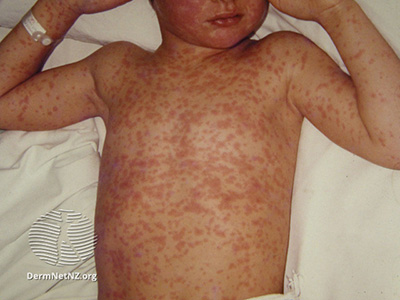
Photo Credit: DermNet
Isolate
- Promptly isolate any suspected patient. Do not allow patients with suspected measles to remain in any public areas, such as waiting rooms, open triage areas, or other common areas.
- Place a mask on the patient and their caregivers until they are isolated.
- Ideally, use a single-patient, airborne infection isolation room (AIIR). If an AIIR is not available, place the patient in a private room with the door closed, and use of HEPA filtration unit in the non-AIIR, if available, is advised. The patient should wear a mask for the duration of time if placed in a non-AIIR.
- Pre-Visit Telephone Triage may be used to reduce the risk of exposure. Key facts to gather include, symptoms, presence of measles in your community, if the patient spent time outside the country in the last 21 days, and if and when the patient received one or more MMR vaccines.
- If there is concern for measles, instruct the patient and family to don face masks prior to entering the facility and to notify staff immediately about the concern for measles.
- If referring a patient with suspected measles to a healthcare facility, the referring provider should contact the receiving facility in advance so they can safely prepare for their arrival.
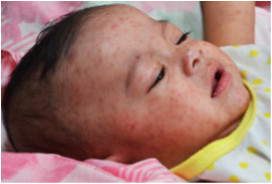
Photo Credit: HealthyChildren.org
Inform
- Immediately notify local and/or state health departments about any suspected cases of measles. Measles is an immediately notifiable disease and should be reported promptly (within 24 hours or patient presentation to your facility) by the state health department to the CDC (measlesreport@cdc.gov) and through the National Notifiable Disease Surveillance System (NNDSS).
- Immediately notify your local Infection Prevention and Control team.
Confirmed Measles Cases in the US (updated February 6, 2025)
Alaska, Georgia, New York City, Rhode Island, and Texas have reported a total of 14 measles cases.
For updated case and outbreak information in the US, click here.
Historically, most US measles importations have come from unvaccinated US residents following international travel. International travelers should be familiar with risk of measles.
For updated global case and outbreak information, click here.
Below are common presentations of measles rash:
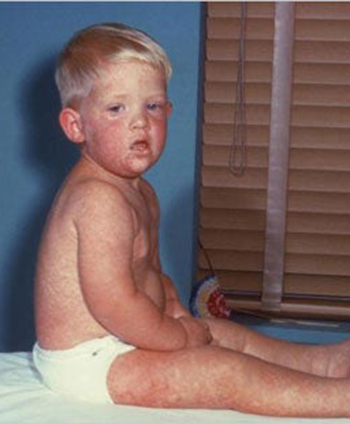
Photo credit: Immunize.org
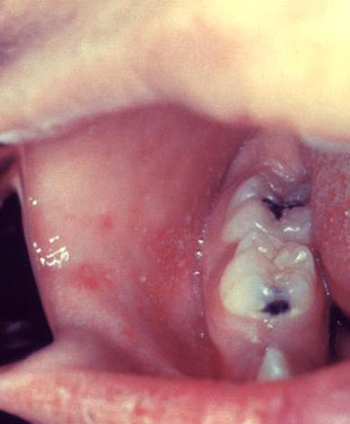
Photo Credit: Centers for Disease Control and Prevention
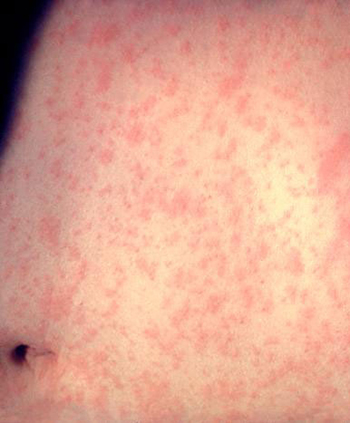
Photo Credit: Centers for Disease Control and Prevention
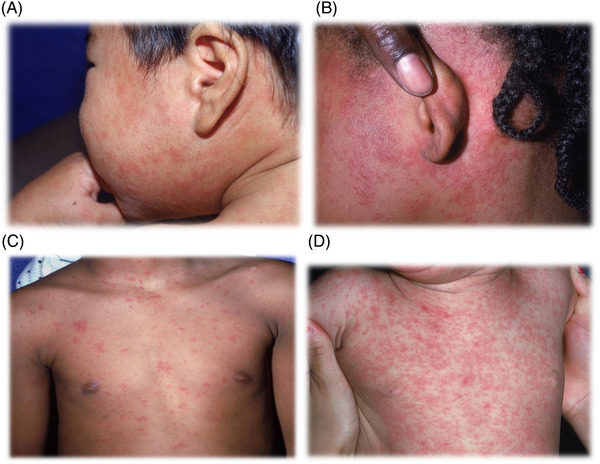
Photo Credit: National Library of Medicine
Additional Information for Healthcare Providers
- Health Alert Network (HAN) – 00504 | Increase in Global and Domestic Measles Cases and Outbreaks: Ensure Children in the United States and Those Traveling Internationally 6 Months and Older are Current on MMR Vaccination (cdc.gov), CDC alert for healthcare and vaccine providers
- Measles (Rubeola) (cdc.gov), an information sheet for healthcare professionals
- For Healthcare Professionals – Diagnosing and Treating Measles | CDC, information for healthcare providers on measles, including who and how to test
- Measles Cases and Outbreaks | CDC, current data of measles cases in U.S.
- Identifying Measles in the Pediatric Setting (brightcove.net), a 5-minute video describing the clinical features of measles
- Preventing Measles Before and After Travel Fact Sheet

